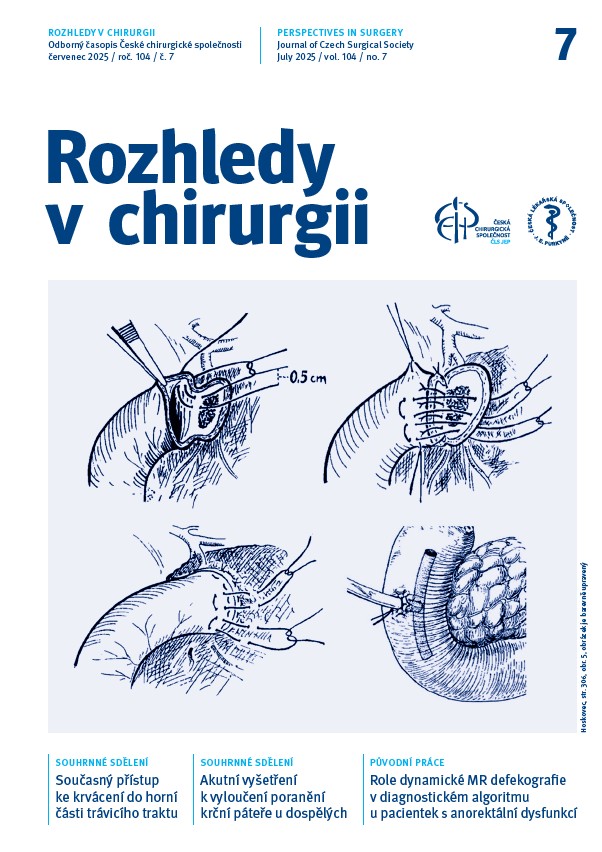Abstract
Introduction and aims: The training of young surgeons in the Czech Republic includes the completion of mini-invasive, laparoscopic simulation courses on a voluntary basis. The aim of this study is to show how simulation is used now to train surgeons and to look back at 10 years of running a simulation, laparoscopic, mini-invasive course from the graduates’ points of view using box and virtual reality simulators.
Type of study: Observational, survey.
Methods: Data were collected from 26 courses (2014–2024) by an anonymous questionnaire. The questionnaires were completed by all graduates (100%). Their evaluation was done by the descriptive statistics method. Questions were asked about expectations and fulfilment of the expectations from the course with its possible recommendation and financial cost.
Results: A total of 96 doctors, 55 men and 41 women, participated in the courses. The questionnaires were completed by all participants. In 89 cases (92.7%), the candidates wanted to learn the correct technique, tips, and tricks in laparoscopic surgery; in 42 cases (43.8%), they expected an increase in the operative time; and in 37 cases (38.5%), a deepening of anatomical and theoretical knowledge was mentioned. The course completely fulfilled the expectations in 92% of the cases, in 6.0% of the cases, it fulfilled them with minor reservations and in 2.0% it fulfilled them partially. Ninety seven percent of participants would recommend the course as compulsory; 3% would leave its recommendation to the discretion of the graduate. Twenty-eight participants (29.2%) fully paid for the course; 5 (5.2%) participants partially paid; and 63 (65.6%) participants received payment from their employer.
Conclusion: The participants recommended the simulation course for compulsory inclusion in the surgical education curriculum, and about one-third of them also expressed willingness to pay for the optional education. Although simulators and simulations in surgery represent an important training potential, the subsequent role of mentor in the form of certified, experienced colleague(s) cannot be replaced by them.
doi: 10.48095/ccrvch2025283


